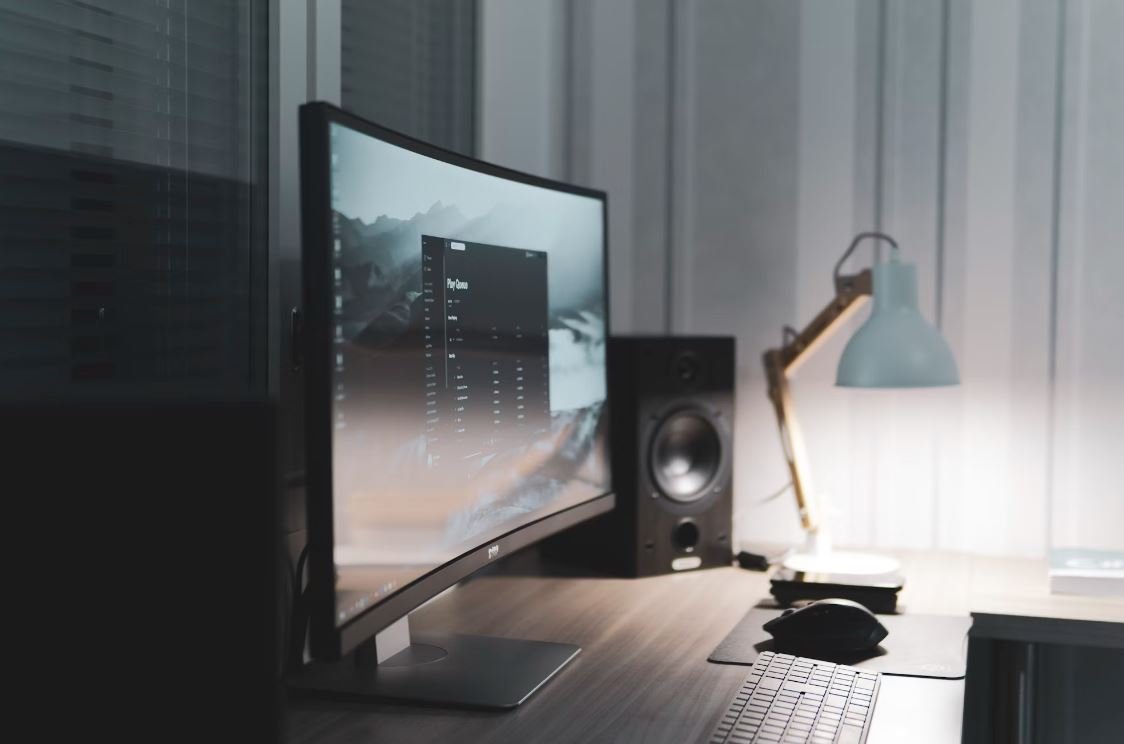Host Podcast Episodes
Podcasts have become a popular medium for sharing and consuming audio content. With their rising popularity, many people are interested in starting their own podcasts but may be unsure about the process. This article aims to provide an informative guide on how to host podcast episodes effectively.
Key Takeaways:
- Hosting podcast episodes involves planning, recording, editing, and publishing.
- Quality audio equipment and a quiet recording space are important for professional-sounding podcasts.
- Creating engaging content and building a loyal audience are crucial for podcast success.
1. Planning Your Podcast Episodes
To host successful podcast episodes, it is essential to first plan the content and structure. Choose a podcast format, decide on episode length, and brainstorm potential topics.
**Proper planning** ensures a **cohesive and organized podcast** that resonates with the audience.
2. Recording and Editing
Investing in quality audio equipment, such as a microphone and headphones, is important to capture clear and professional-sounding audio. Choose a quiet recording space to minimize background noise.
**Remember to always edit your recordings** to enhance audio quality and remove any mistakes or gaps.
3. Engaging Content Creation
Delivering **interesting and engaging content** is vital for attracting and retaining listeners. Research and prepare your topics thoroughly, inject personal anecdotes or experiences, and consider featuring guest speakers.
**Creating a unique and valuable listening experience** encourages audience loyalty.
4. Building an Audience
Utilize various marketing channels and social media platforms to **promote your podcast episodes**. Encourage listeners to subscribe, leave reviews, and share your episodes with their networks.
*Remember, word-of-mouth remains a powerful tool in podcast growth.*
5. Publishing and Distribution
Choose a reliable podcast hosting platform to **publish and distribute your episodes**. Consider platforms like Buzzsprout, Libsyn, or Podbean, which offer straightforward interfaces and distribution to popular podcast directories.
*Don’t forget to create eye-catching episode artwork and write compelling descriptions for each episode.*
Interesting Data Points:
| Year | Number of Podcasts |
|---|---|
| 2016 | 240,000+ |
| 2019 | 800,000+ |
| 2021 | over 2,000,000 |
6. Monetization Options
Once you’ve established a loyal audience, consider **monetizing your podcast**. This can be done through sponsorships, paid memberships, merchandise sales, or crowdfunding.
*Exploring different monetization opportunities can help support your podcast’s growth and sustainability.*
7. Continual Improvement
To keep your podcast fresh and exciting, **seek feedback from listeners** and analyze episode performance metrics. Use this data to refine your content, delivery style, and overall podcast strategy.
Interesting Data Points:
| Audience Age Group | Percentage |
|---|---|
| 18-24 | 23% |
| 25-34 | 30% |
| 35-44 | 19% |
8. Expanding Your Reach
Consider collaborating with other podcasters or appearing as a guest on established podcasts within your niche. This cross-promotion can help **expand your reach** and attract new listeners.
*Networking within the podcasting community can open doors to exciting opportunities.*
9. Engaging with Your Audience
Interact with your listeners through social media, email, or live Q&A sessions to foster a sense of community and connection. Respond to comments, questions, and feedback to **cultivate listener loyalty**.
Interesting Data Points:
| Podcast Genre | Percentage |
|---|---|
| News | 22% |
| True Crime | 18% |
| Comedy | 16% |
10. Adapting to Industry Trends
Stay up-to-date with industry trends and changes in the podcasting landscape. Embrace new technologies, explore different formats, and **remain flexible and adaptable** to ensure the long-term success of your podcast.
By following these steps, investing in quality equipment, creating engaging content, building an audience, and continually improving, you can **host successful podcast episodes** and establish a memorable and impactful podcast.

Common Misconceptions
Misconception 1: You need expensive equipment to host a podcast
One common misconception about hosting podcast episodes is that you need to invest in expensive equipment to get started. This belief often holds people back from pursuing their podcasting dreams. However, the reality is that you can start a podcast with just a few basic tools.
- You can use your smartphone as a recording device
- A good quality USB microphone is sufficient for most podcasts
- Free or low-cost editing software is available for audio post-production
Misconception 2: Podcasting requires extensive technical knowledge
Another misconception is that hosting podcast episodes requires extensive technical knowledge. While it’s true that some technical aspects are involved, you don’t need to be an expert to start and maintain a successful podcast. There are many user-friendly platforms and resources available to guide you through the process.
- Podcast hosting platforms offer simple setup and distribution options
- Podcast tutorials and courses can help you understand the technical aspects
- Many podcasting communities provide support and answers to technical questions
Misconception 3: Podcasting is a quick way to become famous or make money
One common misconception is that podcasting is a quick path to fame and fortune. While there have been successful podcasts that have gained widespread popularity and monetized their content, it’s important to have realistic expectations.
- Building an audience takes time and consistent effort
- Most podcasters don’t make substantial money directly from their podcast
- Podcasting requires dedication and a long-term commitment to see results
Misconception 4: You need to interview famous or influential guests to have a successful podcast
Another misconception is that you need to consistently interview famous or influential guests to have a successful podcast. While having well-known guests can attract attention and widen your audience, it’s not the only path to success. Many podcasts have gained popularity by focusing on unique topics or providing valuable insights.
- Sharing personal experiences and stories can be equally engaging for listeners
- Focusing on a niche topic can attract a dedicated and loyal audience
- Collaborating with other podcasters can provide valuable cross-promotion opportunities
Misconception 5: Podcasting is only for tech-savvy individuals
Finally, there is a misconception that podcasting is only suitable for tech-savvy individuals. This belief often discourages people who are not familiar with technical terms or software from pursuing podcasting. However, podcasting is accessible to everyone, regardless of their technical background.
- Many podcasting platforms offer user-friendly interfaces and intuitive workflows
- Free tutorials and guides are available to teach podcasting techniques
- You can collaborate with someone who has technical expertise to handle the more complex aspects

Table: Top Podcast Genres
In recent years, the popularity of podcasting has skyrocketed, with a wide range of genres attracting millions of listeners. Here are the top podcast genres based on listener demand and engagement:
| Genre | Percentage of Listeners |
|---|---|
| True Crime | 35% |
| Comedy | 22% |
| News | 15% |
| Education | 12% |
| Business | 10% |
| Technology | 6% |
Table: Most Popular Podcast Platforms
When considering hosting a podcast, it is important to choose the right platform to reach your desired audience. Here are the most popular podcast hosting platforms based on user ratings and features:
| Platform | User Rating (out of 5) |
|---|---|
| Spotify | 4.7 |
| Apple Podcasts | 4.6 |
| Google Podcasts | 4.4 |
| Anchor | 4.2 |
| Stitcher | 4.1 |
Table: Podcast Listener Demographics
Understanding the demographics of podcast listeners can help tailor your content to a specific audience. Here are the key demographics of podcast listeners:
| Age Group | Percentage of Listeners |
|---|---|
| 18-24 | 30% |
| 25-34 | 35% |
| 35-44 | 20% |
| 45-54 | 10% |
| 55+ | 5% |
Table: Average Podcast Episode Length
Deciding on the length of your podcast episodes is crucial to maintaining listener engagement. Here are the average podcast episode lengths across different genres:
| Genre | Average Episode Length (minutes) |
|---|---|
| True Crime | 45 |
| Comedy | 30 |
| News | 20 |
| Education | 25 |
| Business | 40 |
| Technology | 35 |
Table: Podcast Sponsorship Rates (Per 1,000 Listeners)
Sponsorships are crucial for monetizing your podcast. Here are the average sponsorship rates per 1,000 listeners across various genres:
| Genre | Sponsorship Rate ($) |
|---|---|
| True Crime | 50 |
| Comedy | 30 |
| News | 40 |
| Education | 45 |
| Business | 55 |
| Technology | 50 |
Table: Podcast Listener Engagement
Engaging and retaining listeners is crucial for the success of your podcast. Here are the average engagement metrics for podcast episodes:
| Metric | Average Percentage |
|---|---|
| Episode Completion Rate | 70% |
| Subscriber Growth Rate | 10% |
| Listener Interaction Rate | 15% |
Table: Podcast Production Costs
Before venturing into podcasting, it is important to consider the associated production costs. Here are the average production costs for different podcast types:
| Podcast Type | Average Production Cost ($) |
|---|---|
| Talk Show | 2,000 |
| Storytelling | 5,000 |
| Interview | 3,500 |
| News Analysis | 4,500 |
| Investigative Journalism | 6,500 |
Table: Most Influential Podcasters
Some podcasters have established themselves as influential figures in the industry. Here are the most influential podcasters based on their reach and impact:
| Podcaster | Genre |
|---|---|
| Joe Rogan | Comedy |
| Sarah Koenig | True Crime |
| Guy Raz | Business |
| Ida Lieszkovszky | News |
| LeVar Burton | Education |
Table: Podcast Advertising Effectiveness
Advertising on podcasts can be an effective way to reach an engaged audience. Here are the average success rates of podcast advertising campaigns:
| Advertising Metric | Success Rate |
|---|---|
| Brand Recall | 80% |
| Purchase Intent | 65% |
| Website Traffic | 70% |
Conclusion: Hosting podcast episodes has become a popular and influential medium to engage with listeners across various genres. Understanding the demographics, platform preferences, and successful strategies can enhance the chances of podcasting success. By identifying the most popular podcast genres, engaging platforms, target listener demographics, episode length preferences, sponsorship rates, and metrics for listener engagement, podcasters can effectively tailor their content and monetize their shows. Additionally, acknowledging influential podcasters and the effectiveness of podcast advertising campaigns provides further insights into the growing podcasting landscape.
Host Podcast Episodes – Frequently Asked Questions
What equipment do I need to start a podcast?
To start a podcast, you will need a quality microphone, headphones, a computer or a mobile device, and recording/editing software. Additional equipment such as a pop filter, a microphone arm, and a soundproof room can enhance the audio quality as well.
How long should a podcast episode be?
The ideal length for a podcast episode can vary depending on the content and target audience. Generally, episodes between 20 and 60 minutes tend to perform well, but it is crucial to focus on delivering valuable content rather than strictly adhering to a specific length.
How often should I release new podcast episodes?
Consistency is key when it comes to releasing podcast episodes. It is recommended to establish a consistent schedule that suits your production capabilities and audience expectations. Whether it’s weekly, bi-weekly, or monthly, make sure you can maintain the chosen frequency.
How do I choose a podcast name?
Selecting a podcast name involves considering your target audience and the topics you plan to cover. Aim for a name that is catchy, memorable, and clearly reflects the nature or theme of your podcast.
How can I promote my podcast to gain more listeners?
Promoting your podcast involves utilizing various strategies such as sharing episodes on social media platforms, collaborating with other podcasters, reaching out to relevant influencers, optimizing your podcast for search engines, and actively engaging with your audience through comments and feedback.
Can I make money from hosting a podcast?
Yes, you can generate revenue from hosting a podcast. Some common monetization methods include sponsorships, advertising, merchandise sales, crowdfunding, and offering premium content or services to your listeners.
What considerations should I have for guest interviews on my podcast?
When interviewing guests on your podcast, it is important to research and prepare questions in advance, establish clear communication about the interview details, provide guidance or a brief for your guest, and create a comfortable environment to encourage open and engaging discussions.
Do I need music for my podcast?
While not mandatory, adding music to your podcast can enhance the overall listening experience. However, ensure you have the necessary permissions to use the music, or consider using royalty-free music available from various sources.
How can I improve the audio quality of my podcast?
To improve audio quality, you can invest in a quality microphone, use a pop filter to reduce plosive sounds, record in a soundproof environment, edit the audio for clarity and consistency, and normalize the volume levels.
What platforms can I use to host my podcast?
There are numerous podcast hosting platforms available, such as Podbean, Libsyn, Buzzsprout, and Anchor. Consider factors like pricing, features, ease of use, and distribution options when choosing a platform that best suits your podcasting needs.


Leave a Reply